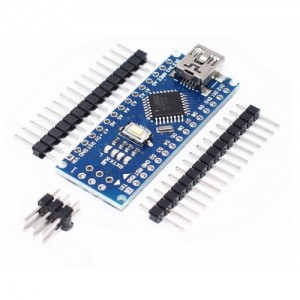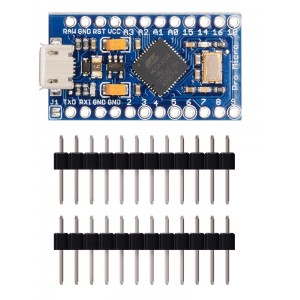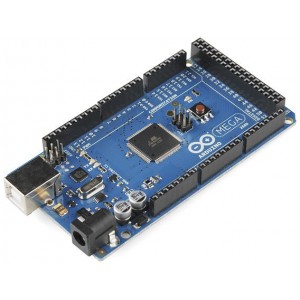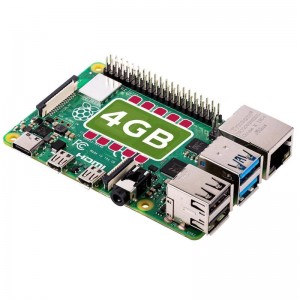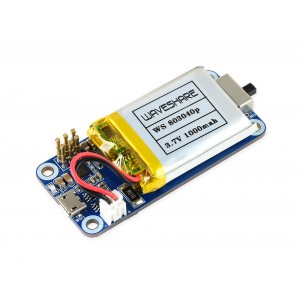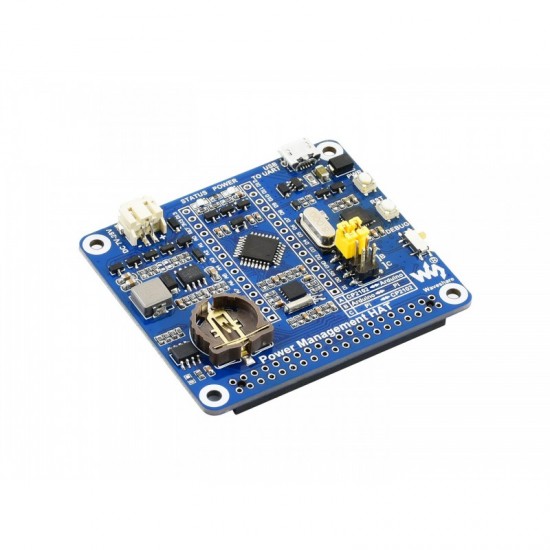
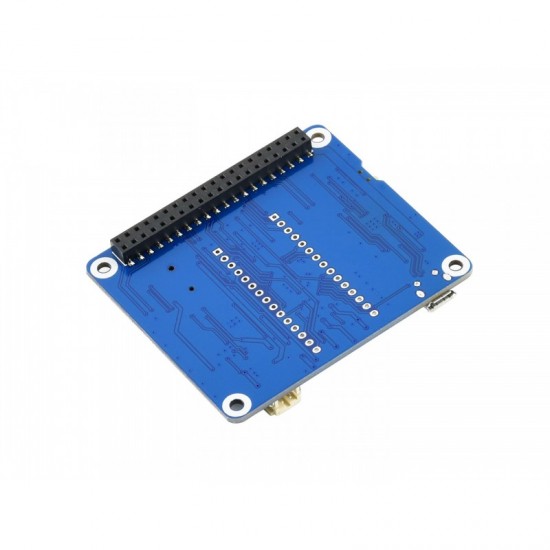
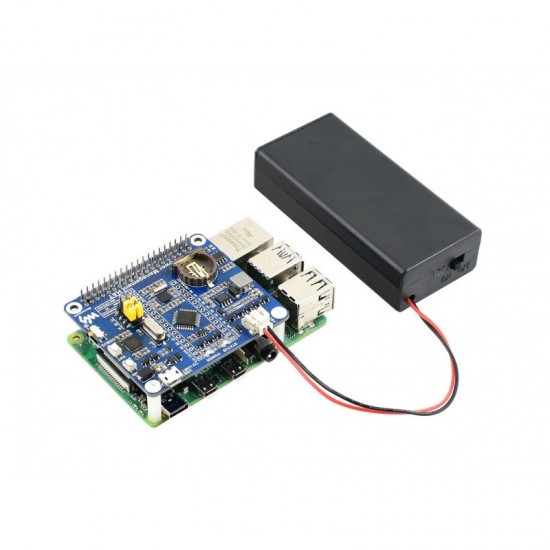



B2B GST Credit Available
- Stock: 6 in Stock
- SKU: 17210
- Delivery Time
- Bulk & B2B RFQ
The Power Management HAT is a smart power bank designed for Raspberry Pi. With the embedded Arduino MCU and RTC, the HAT features auto power management function which allows the Pi to work more power-efficient and more safely.
If you're looking for some convenient utilities for your long-term working Raspberry Pi, such as longer battery life, or auto power on-off control, this Power Management HAT would be the ideal choice.
By auto starting up on specified period, and auto shutdown at other time, the HAT can greatly save the battery life. It will monitors the operating voltage/current status of the Raspberry Pi in real time, and can be configured to shut the Pi down according to the operating status. What's more, it comes with a handy power switch for easy on or off (safely shutdown the Pi by software), to avoid data loss caused by unplugging the power supply.
Usage Instructions
Features
- Standard Raspberry Pi 40PIN GPIO extension header, supports Raspberry Pi series boards
- Onboard ATmega328P MCU, supports Arduino programming
- Onboard PCF8523 RTC chip, provides precise RTC information
- Onboard CP2102 UART converter, for UART communication or ATmega328P programming
- User-defined button, can be used for Raspberry Pi start up, safely shutdown, or other customized function
- Protection circuits such as: power supply anti-reverse, counter current proof, etc. ensures stable and safe operating
- Voltage/current monitoring circuit, monitors the Raspberry Pi operating voltage and current in real time
- Comes with development resources and manual
Specifications
- Controller: ATmega328P-AU
- Communication interface: UART + GPIO
- Baudrate: 115200bps by default (programmable)
- Power supply interface: USB port or PH2.0 connector
- USB power input voltage: 5V
- PH2.0 power input voltage: DC 7~28V (regulated power supply or lithium battery)
- Embedded circuits: power supply anti-reverse, counter current proof, voltage monitoring, current monitoring
- Mounting hole size: 3.0mm
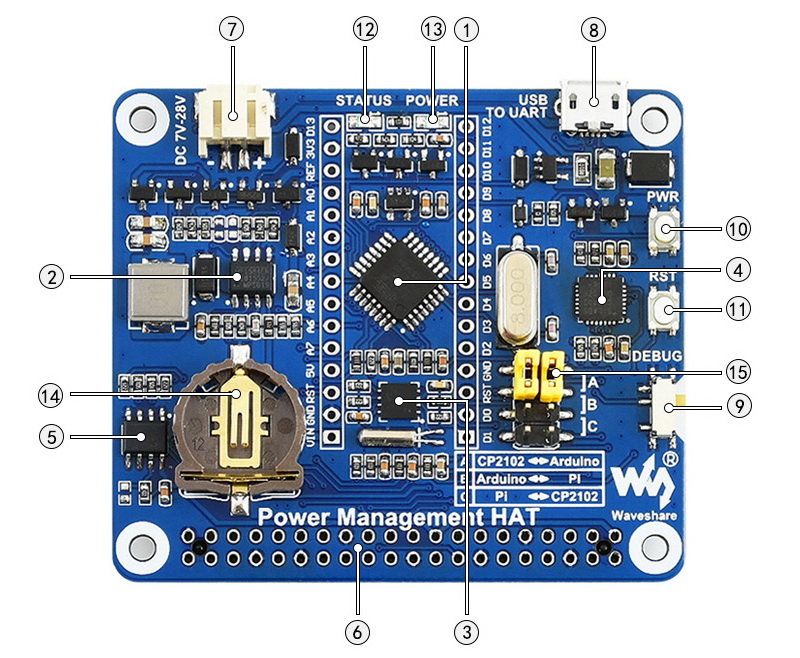
- ATmega328P-AU MCU
- MP1584 power manager
- PCF8523 RTC chip
- CP2102 UART converter
- CAT24C32: EEPROM storage chip
- Raspberry Pi GPIO connector: for connecting Raspberry Pi
- PH2.0 connector: for 7~28V regulated power supply or lithium battery
- USB TO UART: for power input or UART communication
- DEBUG switch: DEBUG side: power supply will bypass the Arduino and directly provides to Raspberry Pi the opposite side: power supply is managed by Arduino
- PWR button: for Raspberry Pi power on/off, or user-defined function
- RST button: Arduino reset
- Status indicator
- Power indicator
- CR1220 button battery holder
- UART selection:
A: access Arduino via USB to UART
B: control the Raspberry Pi by Arduino
C: access Raspberry Pi via USB to UART
SAFETY CAUTIONS
- Li-ion and Li-po batteries are quite unstable. They may cause fire, personal injury, or property damage, if they're not properly recharged or used.
- Do not reversely connect the polarities when recharging or discharging the battery. Do not use inferior charger/charging panel to recharge the battery.
- Do not mix use old batteries with new ones, avoid using batteries of different brands.
- When buying Lithium battery, should always make sure the battery specification is compatible with the expansion board. Choose batteries from formal manufacturer, and ensure the batteries will work stably and safely by aging test.
- Lithium batteries have limited cycle life, they will also deteriorate as time goes by. Should be replaced with new ones when the batteries reaching their max cycle life, or working over two years, whichever comes first.
- Should be placed carefully and properly, keep it away from inflammables and explosives articles, away from children, avoid any safety accident caused by careless storage.


